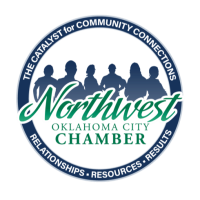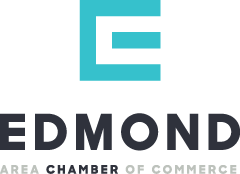
Introduction
For business owners and entrepreneurs, referrals are the best way to multiply your marketing and build a powerful brand. Likewise, collaborators are important because they are still the single best source of new business.
Referrals and collaborators are an essential piece of your brand strategy that a business cannot afford to ignore. How you work with potential collaborators means the difference between getting a referral or a bad review.
In this article, we will define and give examples of collaborators and discuss how business owners and entrepreneurs benefit by using collaborators and reciprocating the referrals they provide.
We will also discuss how collaborators can help up your marketing game to build a powerful brand and referral-based business.
What are Collaborators?
A collaborator is anyone or anything that helps your company’s marketing efforts outside of any of the marketing you do internally. Also known as referral partners, collaborators can be another business you work with or a happy client, supplier or peer. Anyone or any business in your company and employee’s network is a collaborator.
Think of a collaborator as a way to positively promote your business or expand and improve your services. The goal of a collaborator is to help grow your business through referrals.
For example, Nike and Apple have worked together for several years, building products with joint ownership and branding. But not all collaborators work so closely together that they form an explicit partnership.
A collaborator does not have to take a front seat in the business. Some collaborators can simply be brand ambassadors, friends or colleagues who endorse your company’s wins to others. A positive review on Google or a hair stylist who puts a real estate broker’s business card in their salon are examples of a referral and collaboration.
Entrepreneurs and business owners may already have some reciprocal relationships and likely utilize their network; however, that’s not always the case. Solid referral partners are an often overlooked and sorely missed opportunity for many business owners. Collaborators are a trusted voice with an instant know, like and trust factor for prospective customers.
Referrals are the best source of new business and the easiest and cheapest to convert.
Types of collaborators
Collaborators come in many forms. Think of a collaborator as a helping hand for the business outside any marketing you would pay for. This can range from a favorable banking relationship to a positive customer review.
Happy customers
The single best collaborator is a happy customer. A happy customer will sing your praises to everyone in the community, both online and offline. And their happiness is FREE. Even better, if they review your services online, their written review is free advertising that lives indefinitely on the internet.
But grab happy customers while they are hot. Even the most enthusiastic customer will only want to write and post a review for a short time before life takes over. So, consider crafting and implementing procedures showing employees how to ask clients for a review after completing the job and retaining them over time. These policies also act as a reminder for the business owner to do the same.
Referral partners
Another type of collaborator, the referral partner, applies to anyone that you work with that helps you get the job done. Suppliers, distributors, employees, hiring agencies and freelancers are all examples of referral partners.
For example, you may hire out an IT expert to manage your email and computer systems. You can refer them (if they do a great job), and they can refer your business to any clients that fit well with your product or service.
Referrals are an invaluable resource for your business but should also be a part of your marketing plan. Take action by looking for a business that supports your company, ask for a referral and look for ways to develop a collaboration.
Your network
Your professional network can include former colleagues, professors, peers or industry organizations, which are an invaluable resource for growing your brand.
Use your network to boost your marketing efforts. Family, friends and your community love sharing others’ wins and your good news. Don’t underestimate the power of a good word for your business, no matter who it is from.
Network referrals work in mysterious ways. You never know when that person you knew in high school will now have a connection to your business. So, make an effort to broadly reach out to your network to see if there is someone who can help your marketing.
In addition, network referrals work great for those just starting their business and who have not sold anything yet for people to review. If you are in this position, actively connect with others. Don’t be afraid to ask for positive reviews. Your network may not be able to speak to the services you will soon be selling, but they can speak to your character, hard work, expertise and follow-through.
Why are collaborators important?
Collaborators are vital to small businesses, especially new ones. Referrals are your most powerful tools for gaining business since they meet your customers when they’re actively seeking services like yours.
More than likely, a conversation starts with sharing a similar issue where your service will come in handy to help them solve that problem. Additionally, collaborators are “soft” selling tools. People tend to trust them more because they know and are connected to the customer directly, unlike an unknown advertising “hard” sell.
Although you invest time and money in building relationships with collaborators, this effort is much less than what you typically spend on traditional advertising and marketing. And since they are perceived as more trustworthy, collaborators are far more valuable. The bottom line is you can reduce the amount you spend on marketing and advertising if you employ referrals.
Collaborators provide leads, so as mentioned above, by quickly following up with referrals, it is good to create processes and procedures that show employees the correct way to seek out the benefits of collaborators. One way to start is cultivating a list of great collaborators and a process for working with them. This will provide the best return on your marketing efforts.
How can collaborators build your brand?
A brand represents what other people see in your company. Instead of explicitly telling people what your company stands for, a brand tells your story implicitly (For more information on what brands mean, please see our blog post: https://uptimize.marketing/the-power-of-a-brand/).
Collaborators act for your brand because they build your brand’s perception as others perceive it. For example, if you want others to perceive you as an expert who cares about their customers, a positive referral will magnify that brand perception. Your collaborators back you up on that promise with their referrals and networking.
On the other hand, it won’t matter what your social posts say if your potential collaborators tell folks you don’t know what you’re talking about. So, collaborators are vital for adding credibility to what you promise to provide clients.
Magnifying Collaborators Power
Referrals are great, but they become more powerful when you magnify the collaboration. To reap the most benefit out of a referral, consider a few questions:
- It’s easy to understand how referrals help your business but have you considered taking it up a notch?
Even though it seems like this fast-paced world is overwhelming, it is still a small world. Even if you didn’t know your clients and customers before, now that you’ve served them, they provide low-hanging fruit for referrals. And since you’ve already worked with them in the past, try finding even more ways they can help your business.
Partnerships with past clients work well because you have solved their problems, and they have first-hand experience with your expertise. Ask yourself if there are other ways the collaborator can continue the relationship and help your business more. Think out-of-the-box about how their business can help yours.
Some ways to build a referral may include:
- Cross-promoting each other’s brands on social media
- Be a guest speaker or expert on their podcast
- Invite them to your networking event, or ask them to participate in theirs
- Showcase their product or service at your place of business or website
- Is the relationship one-sided or two?
The best collaborators are reciprocal. So, when looking to develop solid referral partners, it’s best to make sure you can send as many referrals to them as you want them to send to you.
Understand that others may not have your exact expectations, so don’t stress about not receiving the same number of referrals from the relationship as you would give to them. However, if you are going down a one-way street for too long, don’t be afraid of not going the extra mile by continuing to offer referrals to them. Instead, move on to a more fruitful relationship.
- Not comfortable referring your clients to your collaborator?
You can often find ways to ask for referrals or build a collaborative relationship with a past customer. However, not everyone makes a great collaborator for your business. If you feel uncomfortable referring clients to someone, listen to your gut. Maybe it’s time to rethink the relationship.
In Summary
Collaborators can make or break your business. They are the backbone of a solid referral-based business. If you cultivate good relationships with other companies and your customers, they’ll advertise for you. But if you give them a negative experience, they’ll impede your business and reduce your credibility.
A powerful brand starts with a thoughtful marketing strategy, and collaborators should be a part of it. And savvy marketers know there is a method for getting higher-quality referrals with a better rate of return.
Are you interested in learning more about how to build your referrals to grow your business? Uptimize can help you build a strategy for creating a referral-based business and up your marketing game. Contact Uptimize for help with your brand: https://uptimize.marketing/contact/.










